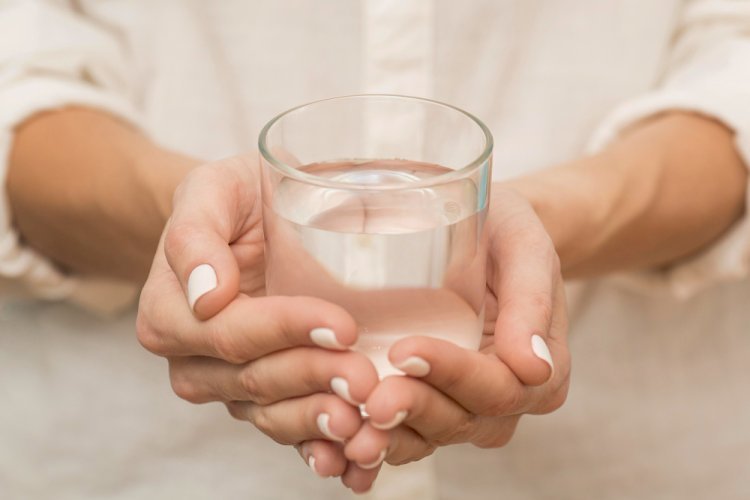5 Reasons Why Clean Water Is a Human Right, Not a Luxury

Water is the essence of life, yet millions of people around the world continue to struggle with accessing clean water daily. While many of us take turning on a faucet for granted, over two billion people still lack access to safe drinking water, making this basic necessity feel more like a luxury than a fundamental human right.
The reality is stark: clean water should never be considered a privilege reserved for the fortunate few. It's a basic human right that forms the foundation of health, dignity, and sustainable development. Understanding why clean water access is so crucial helps us recognize the urgent need for global action and support organizations working tirelessly to bridge this gap.
It’s legally recognized as a fundamental human right
The international community has formally acknowledged that access to water and sanitation are recognized by the United Nations as human rights – fundamental to everyone's health, dignity and prosperity. This recognition isn't merely symbolic; it establishes a legal and moral framework that obligates governments and the global community to ensure universal access to clean water.
The UN's recognition of clean water as a human right means that every person, regardless of their geographic location, economic status, or social background, deserves access to sufficient, safe, and affordable water for personal and domestic use. Everyone has the right to sufficient, continuous, safe, acceptable, physically accessible and affordable water for personal and domestic use.
This legal framework creates accountability and provides a foundation for advocacy efforts worldwide. When clean water is viewed as a human right rather than a commodity, it shifts the conversation from charity to justice, from aid to obligation.
It prevents diseases and saves lives
Access to clean water is literally a matter of life and death. Contaminated water sources serve as breeding grounds for waterborne diseases such as cholera, typhoid, hepatitis A, and diarrheal diseases that claim countless lives annually, particularly among children under five years old.
The health implications of lacking clean water extend far beyond immediate illness. Resulting infectious diseases contribute to at least 1.4 million annual deaths and 50% of global malnutrition. When people lack access to clean water, they're forced to use contaminated sources, leading to a cycle of illness that weakens immune systems and perpetuates poverty.
Communities with reliable clean water access experience dramatically improved health outcomes. Children miss fewer school days due to illness, adults can maintain steady employment, and healthcare systems face reduced pressure from preventable waterborne diseases. The ripple effect of clean water access on public health cannot be overstated.
Empowers economic development and breaks poverty cycles
Clean water access serves as a catalyst for economic growth and poverty reduction. When communities gain access to reliable, clean water sources, they unlock opportunities that were previously impossible due to time spent collecting water or dealing with water-related illnesses.
Women and children, who traditionally bear the responsibility of water collection in many cultures, can redirect their time toward education, income-generating activities, and community development when clean water becomes accessible nearby. This shift has profound implications for gender equality and educational advancement.
Businesses and agriculture also thrive with reliable clean water access. Farmers can irrigate crops more effectively, small businesses can operate without water-related interruptions, and communities can attract investment and development opportunities. Water, when managed sustainably and equitably, can be a source of peace and prosperity.
Promotes dignity and social equality
Access to clean water is intrinsically linked to human dignity. When people must walk hours to collect water from contaminated sources, when children can't attend school because they're responsible for water collection, when families face the impossible choice between staying hydrated and staying healthy, their fundamental dignity is compromised.
Marginalized groups are often overlooked, and sometimes face discrimination, as they try to access the water and sanitation services they need. This inequality perpetuates social divisions and prevents entire communities from reaching their potential.
Clean water access levels the playing field, providing everyone with the basic foundation needed to pursue education, employment, and community participation. It removes barriers that prevent marginalized communities from accessing opportunities and contributing to society.
Essential for global stability and peace
Water scarcity and poor water quality contribute to regional instability, migration patterns, and conflict. When communities lack access to clean water, they may be forced to migrate in search of better resources, leading to displacement and potential conflicts over water rights.
It can promote community stability and peacebuilding – especially in fragile situations – and contribute to migration management and disaster risk reduction. Ensuring universal access to clean water helps create more stable societies and reduces the likelihood of water-related conflicts.
Climate change intensifies water challenges, making clean water access even more critical for global stability. Communities with reliable clean water sources are better equipped to adapt to climate changes and maintain stability during environmental challenges.
The path forward: Making clean water access universal
Despite the challenges, progress is possible. Billions of people will lack access to these basic services in 2030 unless progress quadruples, but this statistic also highlights the opportunity for dramatic improvement with increased effort and resources.
Organizations like Embrace Relief work tirelessly to bridge the clean water gap, implementing sustainable solutions that transform communities. Through well-digging projects, water purification systems, and infrastructure development, these efforts demonstrate that universal clean water access is achievable with sufficient commitment and resources.
The key lies in recognizing that clean water isn't a luxury to be enjoyed by the privileged few, but a fundamental human right that forms the foundation of healthy, prosperous, and stable societies. When we treat clean water as the human right it is, we create the moral imperative and practical framework needed to ensure that everyone, everywhere, has access to this life-sustaining resource.
Clean water is undeniably a human right, not a luxury. The evidence is clear: access to clean water saves lives, promotes economic development, upholds human dignity, reduces inequality, and contributes to global stability. 2.2 billion people still lacked access to safely managed water services, representing both a humanitarian crisis and an opportunity for transformative action.
The path to universal clean water access requires continued advocacy, sustained funding, innovative solutions, and unwavering commitment to the principle that every human being deserves access to safe, clean water. By supporting organizations working on the ground and maintaining pressure for policy changes, we can move closer to a world where clean water truly is a guaranteed right rather than an unattainable luxury.
The question isn't whether we should ensure universal clean water access, but how quickly we can make it happen. The moral, legal, and practical arguments are clear: clean water is a human right, and it's time we treat it as such.
What's Your Reaction?















